I am not sure how to go about this. My ticket object, has a DateTime property called TicketCreationTime, which said property is defaulting to 1/1/0001 at 12 AM; every time it's edit entity function is called from the tickets controller.
How could I make it, so that the TicketCreationTime stays the same as changes are made to it's ticket object? That way, the creation time is always the time as when the ticket was made?
Ticket Object
public class Ticket
{
public int ID { get; set; }
public string Name { get; set; }
public string Description { get; set; }
public DateTime TicketCreationTime { get; set; }
public DateTime DueDate { get; set; }
public DateTime TicketUpdatedTime { get; set; }
public Ticket()
{
}
}
TicketsController Create
public async Task<IActionResult> Create([Bind("ID,Name,Description,TicketCreationTime,DueDate,TicketUpdatedTime,CurrentStatus,Importance")] Ticket ticket)
{
if (ModelState.IsValid)
{
DateTime StartTime = DateTime.Now;
ticket.TicketCreationTime = StartTime;
ticket.TicketUpdatedTime = StartTime;
_context.Add(ticket);
await _context.SaveChangesAsync();
return RedirectToAction(nameof(Index));
}
return View(ticket);
}
TicketsController Edit
public async Task<IActionResult> Edit(int id, [Bind("ID,Name,Description,TicketCreationTime,DueDate,TicketUpdatedTime,CurrentStatus,Importance")] Ticket ticket)
{
if (id != ticket.ID)
{
return NotFound();
}
if (ModelState.IsValid)
{
try
{
ticket.TicketUpdatedTime = DateTime.Now;
_context.Update(ticket);
await _context.SaveChangesAsync();
}
catch (DbUpdateConcurrencyException)
{
if (!TicketExists(ticket.ID))
{
return NotFound();
}
else
{
throw;
}
}
return RedirectToAction(nameof(Index));
}
return View(ticket);
}
